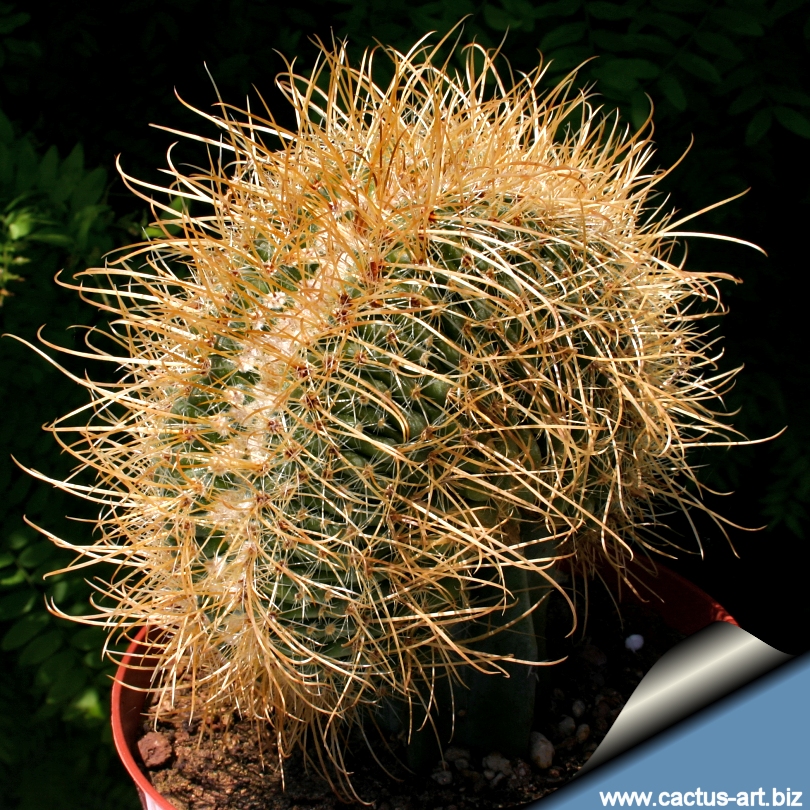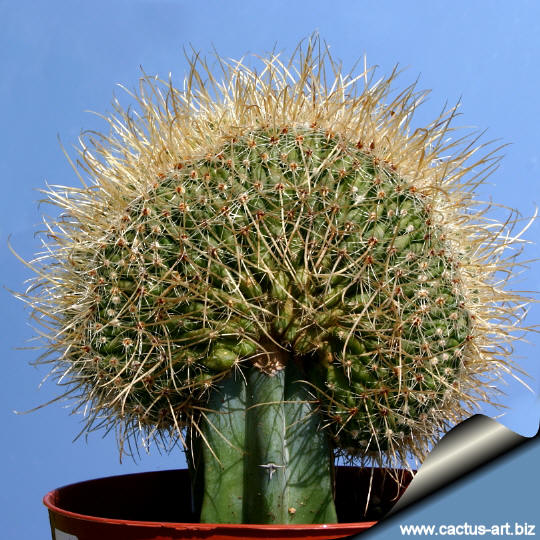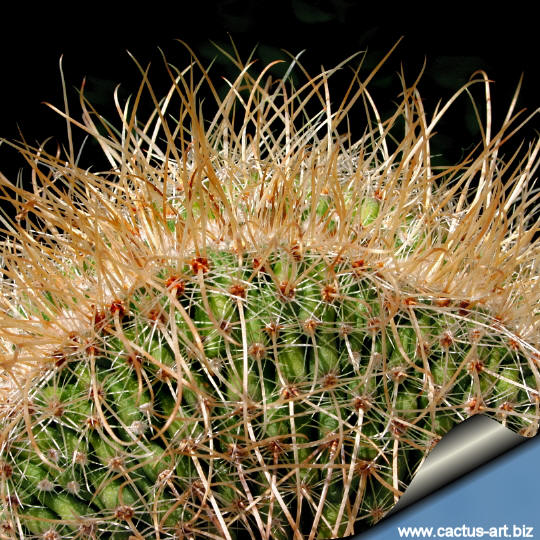|
|
|

Parodia masii forma cristata
|
|
Description:
The typical parodia maassii is a
spherical cactus covered with long,
curved, dense, and variably coloured spines. In particular the central
spines are strong (measuring between 3 and 7 cm). They are yellow
on the
upper part of the plant, and go upwards. In older parts they
become clear yellow, and go downwards. The
crested form is very rare, and particularly sought after for its
armament of long hooked spines. Also this
crest
gets quite large, making a spectacular specimen.
Stem: Mid-green to
intense green color, up to15 cm. wide, with the apical part densely
covered with white wool.
Ribs: 13- 21, chinned and arranged in spiral.
Areoles: Big and woolly at first, but they become naked with
age.
Flowers: Funnel-shaped, large coppery-yellow or orange, but they
can also be carmine or red with an orange center. 3 (or more) cm across.
|
|
Cultivation:
It is a fairly easy plant to grow, both
grafted or in its own roots. During the summer it is best to keep the
plants outside where the temperature can rise to over 30 C with no harm
to the plant. Furnish good drainage and use an open and free-draining
mineral compost that allows roots to breath. These plants like only a
short winter's rest, and should be kept almost completely dry during the
winter months. If the soil is allowed to be dry for too long, root loss
may follow, but the same result would occur if the plants were
both wet and cold. From March onwards the plant will begin to grow, and
watering should be increased gradually until late May, when the plant
should be in full growth.
Water regularly during the summer, as long as the plant pot is allowed to
drain, and not sit in a tray of water. During hot weather you may need to
water the plants more frequently, as long as the plant is actively
growing. From late September watering should be reduced, to force the
plant to go in to a state of semi dormancy. By October you should be
back to the winter watering regime.
These plants need full sun, avoiding only the harshest summer sun.
If kept too dark
they may become overly lush and green, and could be prone to rot
due to over-watering.
Feeding may not be necessary at all if the compost is fresh.
Then feed
in summer only if the plant hasn't been repotted recently. Do not feed
the plants from September onwards, as this can cause lush growth which
can be fatal during the darker cold months. Grown
specimens resist to -4°C for a short time, but it is best to keep above
0° C to avoid ugly spots on the plant epidermis.
Propagation: By
vegetative propagation, grafting, or stem cuttings from adult plants.
Photo of
conspecific taxa, varieties, forms and cultivars of
plants belonging to the Parodia
maassii
complex
(This
Taxon has lots of
synonyms (like most Parodia), with several controversial varieties and
subspecies):
|
|
Advertising
|
|
|
|
|
Family:
Cactaceae (Cactus
Family)
Scientific name: Parodia maassii (masii or massii)
((Heese) A. Berger
Kakteen (Berger) 344, 1929 forma
cristata
Origin:
Garden origin (Nursery
produced cultivar)
Conservation status: Listed in
CITES appendix 2.
|
Synonyms:
- Echinocactus maassii
Heese
- Malacocarpus maassii
- Bolivicactus maassii
|
|
|
|
 It
It is a very variable
species, with dense, strong and curved spination, It
It is a very variable
species, with dense, strong and curved spination,
often yellow or amber coloured.


 |
|